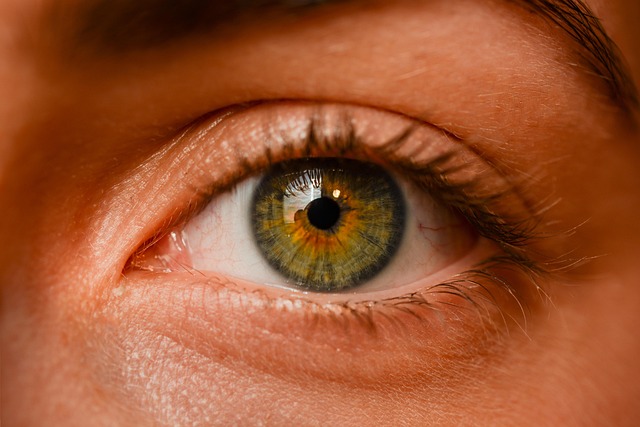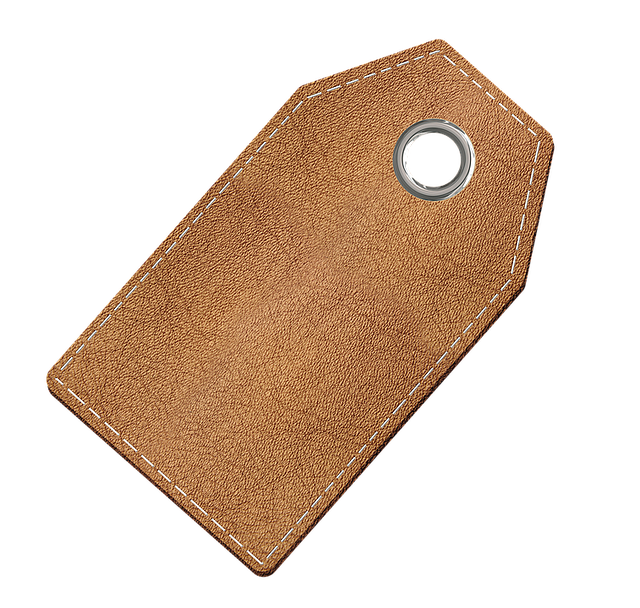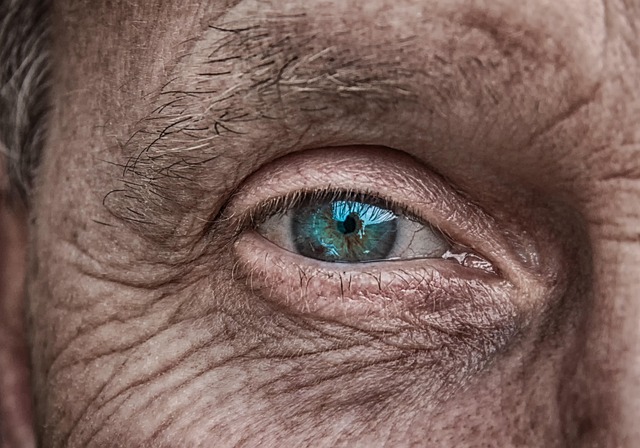Edinburgh Skin Tag Removal: Natural Remedies to Surgical Options

Skin tags, benign growths caused by excess skin cells, can be treated at home using natural remedies…….
Introduction
Skin tag removal is a common dermatological procedure that addresses benign skin growths known as acrochordons. In Edinburgh, Scotland, this procedure has gained significant attention due to its tailored approach to skin health and aesthetics. This article delves into the nuances of Edinburgh Skin Tag Removal, exploring its methods, benefits, and relevance within the broader context of medical dermatology. We will also examine the global impact, economic considerations, technological advancements, policy frameworks, challenges, success stories, and future prospects of this procedure.
Understanding Edinburgh Skin Tag Removal
Edinburgh Skin Tag Removal refers to the surgical or non-surgical procedures used to remove skin tags, a type of benign skin lesion. These procedures are performed by qualified medical professionals, including dermatologists and plastic surgeons. The removal is often sought for cosmetic reasons, as well as for medical necessity when skin tags become irritated, infected, or large enough to cause discomfort or hygiene issues.
Historically, skin tag removal has evolved from simple excisional techniques to more advanced methods such as cryotherapy, electrocoagulation, and laser surgery. Edinburgh’s approach is particularly noteworthy due to its integration of the latest medical advancements with patient-centered care. This holistic approach ensures that each case is treated individually, considering factors like size, location, and patient health history.
Global Impact and Trends
The global impact of skin tag removal procedures reflects a growing awareness of skin health and the aesthetic appeal of clear, unblemished skin. The procedure’s popularity is influenced by increasing public access to medical information, the availability of advanced dermatological treatments, and a rising demand for cosmetic procedures globally.
Different regions exhibit varying trends in skin tag removal. For instance, in North America and Western Europe, including Edinburgh, there is a higher prevalence of cosmetic-driven removals. In contrast, in parts of Asia and Africa, the focus may be more on addressing health concerns associated with skin tags. The global trend indicates a shift towards minimally invasive procedures, with an emphasis on safety, efficacy, and faster recovery times.
Economic Considerations
The economic aspects of Edinburgh Skin Tag Removal are multifaceted. From a market perspective, the demand for dermatological services has led to significant investment in medical technologies and facilities specializing in skin care. The economic impact is not limited to healthcare expenditure but extends to the broader economy through job creation in healthcare, research, and development sectors.
In economic systems, procedures like Edinburgh Skin Tag Removal contribute to the well-being economy by improving quality of life and increasing consumer confidence. They also play a role in preventing more serious conditions that can arise from untreated skin tags, thus reducing long-term healthcare costs.
Technological Advancements
The field of dermatology has seen remarkable technological advancements that have significantly improved the process of skin tag removal. Technologies such as laser surgery, cryotherapy, and radiofrequency ablation offer minimal scarring, reduced recovery time, and lower risks of infection or complications.
In Edinburgh, these technologies are employed with precision and expertise. For instance, advanced laser systems like pulsed dye lasers and Nd:YAG lasers are used to target skin tags effectively while minimizing damage to surrounding tissue. The future holds promise for even more innovative solutions, such as natural biomaterials that promote healing or AI-driven diagnostic tools for early detection of skin growths.
Policy and Regulation
The policies and regulations governing Edinburgh Skin Tag Removal are stringent, ensuring high standards of safety and efficacy. The General Medical Council (GMC) sets the ethical guidelines that medical professionals must adhere to. Additionally, the local National Health Service (NHS) and private clinics follow specific protocols for patient assessments, pre- and post-procedure care, and follow-up treatments.
Regulatory bodies such as the Medicines and Healthcare products Regulatory Agency (MHRA) oversee the approval of medical devices and technologies used in skin tag removal. These regulations protect patients and ensure that only safe, effective, and evidence-backed methods are used.
Challenges and Criticisms
Despite its benefits, Edinburgh Skin Tag Removal faces challenges such as public misconceptions about the necessity of these procedures, variations in the quality of care provided by different clinics, and the risk of complications with improper execution. Additionally, there is criticism regarding the cost-effectiveness of cosmetic-driven removals, especially within the NHS, where resources are finite and must be allocated judiciously.
To address these issues, a multi-faceted approach is necessary. This includes improving public education about skin tag removal, standardizing procedures across clinics, and ensuring that treatments are administered by qualified professionals. Furthermore, advocating for better integration of skin tag removal within the NHS could alleviate financial burdens on patients and ensure equitable access to care.
Case Studies
Several case studies from Edinburgh demonstrate successful outcomes following skin tag removal. One such case involved a patient with numerous skin tags that were causing significant discomfort and self-consciousness. After a series of non-invasive treatments, the patient experienced improved quality of life with minimal scarring and a quick recovery time.
Another case highlighted the successful use of advanced technologies in the removal of atypical skin tags, which had a higher risk of malignancy. The early intervention and precise treatment led to a positive prognosis for the patient. These cases underscore the importance of access to high-quality care and the benefits of using cutting-edge technology in dermatological procedures.
Conclusion
Edinburgh Skin Tag Removal exemplifies a comprehensive approach to dermatological health, integrating medical innovation with patient safety and well-being. Its impact is felt globally as it contributes to the advancement of medical care and sets standards for other regions to follow. Through continuous improvement in techniques and technologies, Edinburgh’s approach to skin tag removal will undoubtedly evolve further, offering even more benefits to patients worldwide.
The above content provides an overview of the various aspects of skin tag removal as practiced in Edinburgh. It is important to note that this information is intended for educational purposes and should not replace professional medical advice. Always consult with a healthcare provider for personalized medical guidance.

Skin tags, benign growths caused by excess skin cells, can be treated at home using natural remedies…….

In Edinburgh, understanding skin tag types guides removal decisions. Costs vary widely based on trea…….

Skin tags, common benign growths in Edinburgh, can be removed for cosmetic reasons or comfort. Cause…….

Edinburgh Skin Tag Removal focuses on understanding causes like insulin resistance and hormonal chan…….

Skin tags, benign growths caused by friction, can be removed for cosmetic reasons or due to discomfo…….

Skin tags, benign growths on the body, are influenced by genetics, hormones, and friction. Edinburgh…….

Skin tags, caused by friction, hormonal changes, and obesity, are benign growths common in neck, arm…….

Edinburgh Skin Tag Removal offers advanced solutions for comfortable and safe skin tag elimination i…….

In Edinburgh, where demand for Edinburgh Skin Tag Removal services is high, residents have diverse o…….

Skin tags, harmless but uncomfortable growths, can be effectively eliminated through Edinburgh Skin…….

Skin tags in Edinburgh can be gently and effectively removed using natural methods that avoid surgic…….

Skin tags, caused by friction or contact, are soft growths treatable in Edinburgh through diverse me…….

Skin tags, or acrochordons, are common harmless growths caused by friction, genetics, or health fact…….

Skin tags, medically known as acrochordons, are benign growths caused by friction, genetics, weight…….

Cryotherapy, a quick and painless procedure using liquid nitrogen, effectively removes skin tags in…….

Skin tags, common soft growths caused by friction, are usually harmless and can be removed cosmetica…….

Edinburgh residents have access to diverse, non-invasive skin tag removal methods, including cryothe…….

Skin tags, common on neck, armpits, and groin, can be treated naturally with apple cider vinegar (AC…….

Skin tags, harmless but unsightly growths, are caused by friction, hormones, or medical conditions……..

Skin tags, or acrochordons, are soft growths commonly found in areas of friction. While harmless, ma…….

Skin tags, harmless growths appearing as hanging tags, can be removed in Edinburgh through diverse m…….

Skin tags, harmless growths common in adult neck and groin areas, can be removed at home using Edinb…….

Skin tags, or acrochordons, are common, soft growths in body folds, caused by factors like friction…….

Skin tags, caused by friction, are benign growths treatable in Edinburgh. Residents have options, fr…….

Cryotherapy is an effective and non-invasive method for Edinburgh Skin Tag Removal, using extreme co…….

Skin tags, benign growths caused by friction, are common on neck, armpits, and groin. Individuals in…….

Skin tags, medically termed acrochordons, are common, soft skin growths that can appear anywhere but…….

Skin tags in Edinburgh can be caused by genetics, age, hormonal changes, obesity, and friction from…….

Skin tags, common in Edinburgh, can be treated naturally using tea tree oil, known for its antimicro…….

Skin tags, harmless but embarrassing growths common on neck, armpits, and groin, can cause discomfor…….

Skin tags, caused primarily by friction or irritation from clothing, are a common concern in areas l…….

In Edinburgh, seeking professional Edinburgh Skin Tag Removal services provides multiple options lik…….

Skin tags, caused by friction and hormonal changes, are a common concern in Edinburgh. Prevention th…….

Skin tags, benign growths common in specific areas, are linked to genetics and can cause discomfort……..

Skin growths like warts, moles, and skin tags are common but require understanding for management. I…….

Skin tags, caused by friction and genetic factors, are common but often removed for cosmetic reasons…….

Skin tags, medically known as acrochordons, are small skin growths caused by friction or irritation,…….

Skin tags, benign growths linked to friction and various factors, can be removed professionally or a…….

Skin tags, common growths from friction, are safely and effectively removed in Edinburgh clinics thr…….

Skin tags, caused by factors like friction, genetics, and hormonal changes, can be addressed through…….

Skin tags, common in areas of friction, are soft skin growths that can be removed for cosmetic reaso…….

Skin tags, harmless growths commonly found on the neck, armpits, or groin, vary in size and color. E…….

Skin tags, soft growths caused by collagen clustering, are common on the neck, armpits, and groin. E…….

Skin tags, common growths in Edinburgh, can be removed through various methods. Non-invasive options…….

Skin tags, common growths in Edinburgh, vary in size and cause, prompting removal for aesthetics or…….

Edinburgh residents have diverse options for skin tag removal, from at-home remedies to professional…….

Skin tags, soft growths caused by friction, are commonly found on the neck, armpits, groin, and bell…….

Skin tags, caused by various factors, are common but harmless growths. Edinburgh Skin Tag Removal sp…….

In Edinburgh, modern medical techniques provide quick, pain-free skin tag removal. After local anaes…….